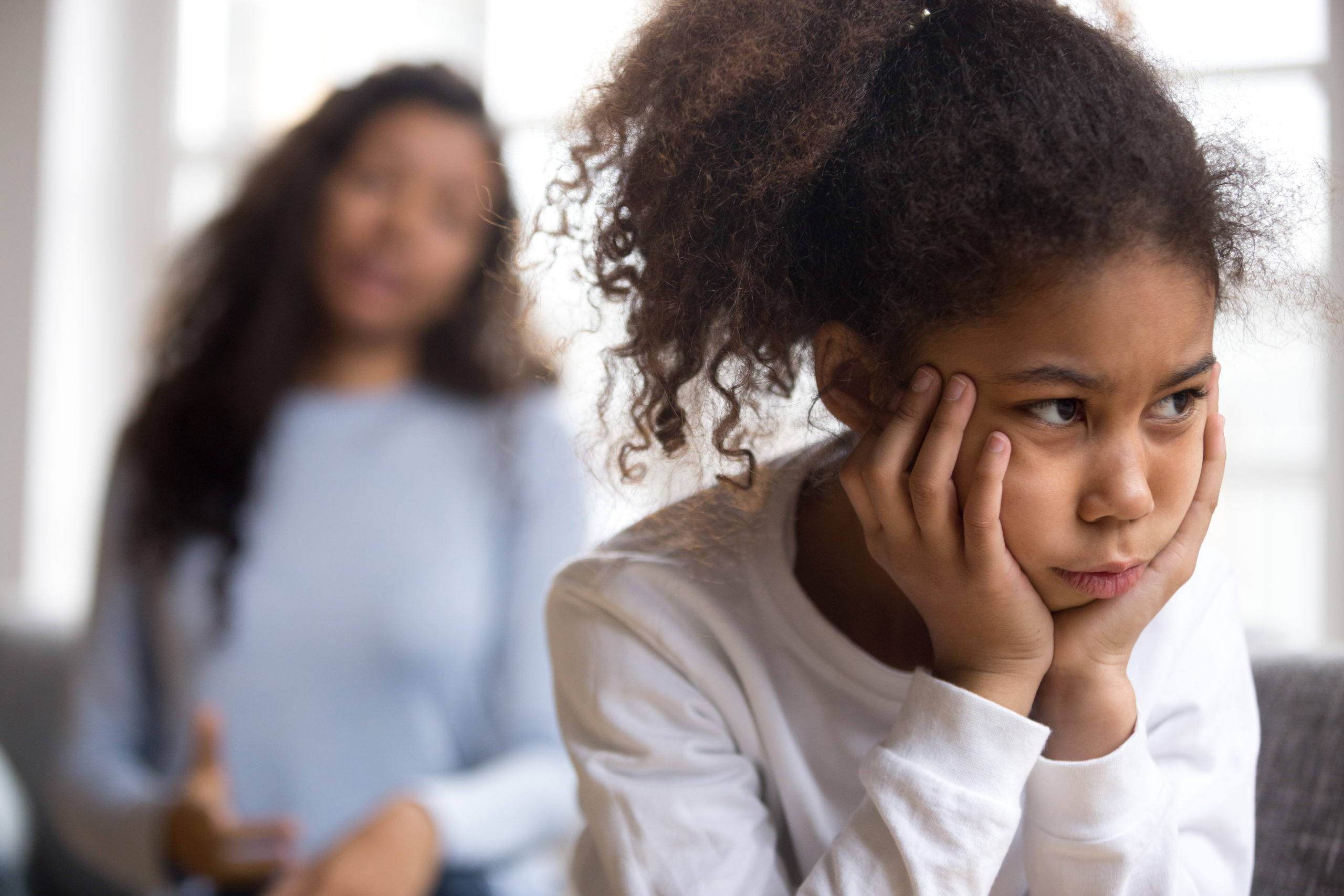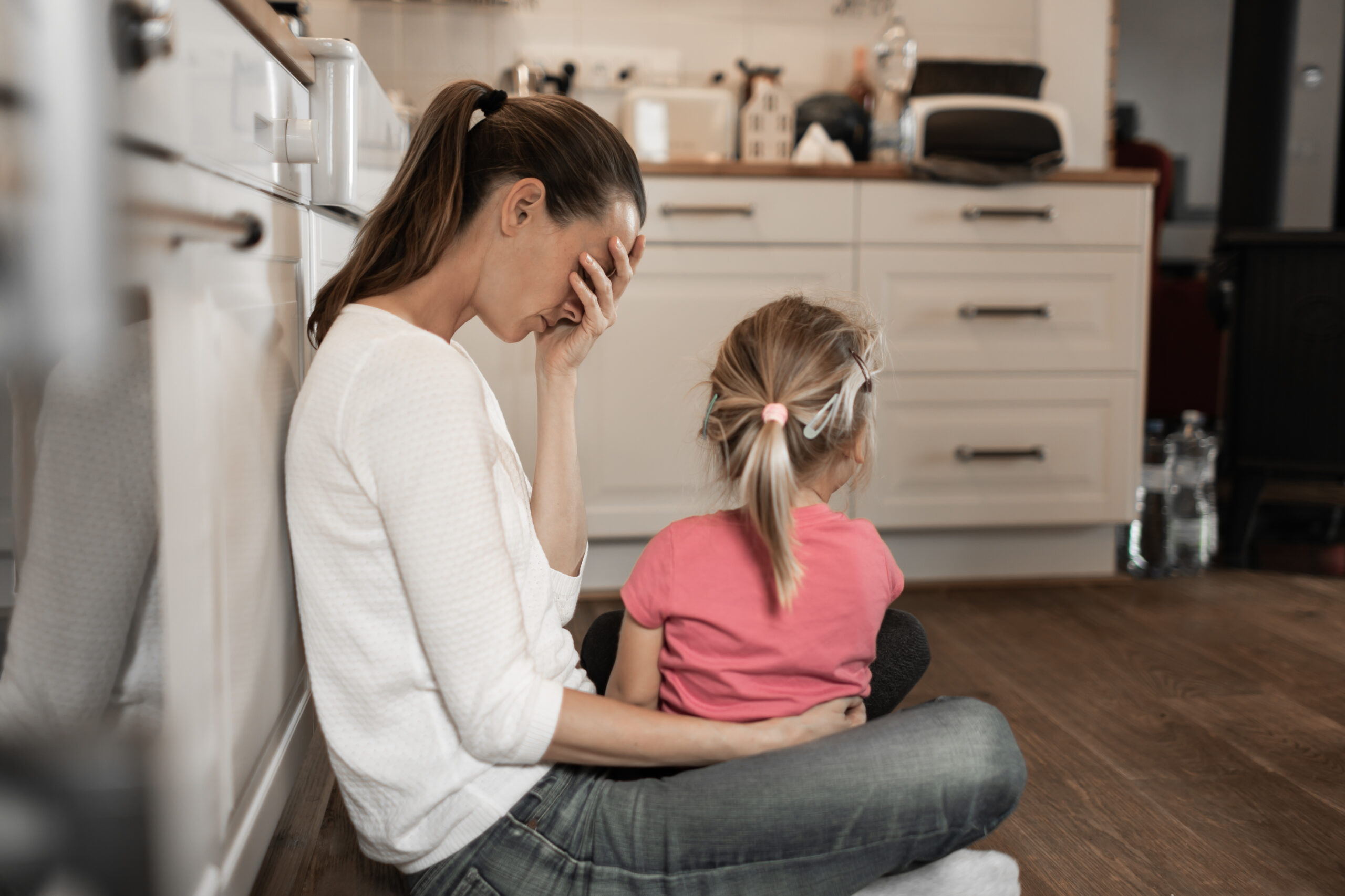The source of my daughter’s eighth meltdown of the day? A pink bowl. Pink is her favorite color—or at least it used to be. I learned her new favorite color as she fell to the floor screaming, “PURPLE, MOMMY!” between sobs. Remind me again why moms aren’t given the ability to read our kids’ minds. Eventually, the tantrum passed (as they do) and things were good until they weren’t. I just wanted this tantrum cycle to stop.
Initially, I focused on preventing the meltdowns from taking place. But as you know, some tantrums are inevitable. So, I wondered, how do you talk to a child after a tantrum? Shifting our focus to connecting after the drama won’t undo what’s just gone down, but it can turn a moment of craziness into an opportunity for connection. Once the sensory overload has passed, try saying one of these 7 things to your child.
1. “That was really hard for you.”
It’s easy to make kids out to be the “bad guy” while they are having a meltdown, especially if their behavior is causing you to struggle. But it is important to remember your child is having a hard time, too! Kids don’t want to struggle—it may even feel scary for them. I know when I am having a hard time emotionally, it is comforting to have someone simply recognize the difficulty I’m facing. Next time you’re not quite sure how to talk to your child after a tantrum, acknowledge the trickiness of big feelings.
2. “Do you need a hug?”
I ask my daughter this question after every meltdown, and I have yet to receive a no from her. There is no better way to initiate reconnection with your kids than by drawing near to them, especially if they’re not ready to talk just yet. Even if one of you is still upset, offer to hug it out for a moment. Some children feel shame following poor behavior, so a hug can reassure them that you want to be close even in tense situations.
Some children feel shame following poor behavior, so a hug can reassure them that you want to be close even in tense situations. Click To Tweet3. “I get upset like that sometimes, too.”
Do you ever text a mom friend to vent about something, and she texts back those magic words, “me, too!” There’s something comforting in those little words—and kids like hearing them, too. Knowing you’re not alone in your feelings makes it easier to get through feelings of guilt, shame, and disappointment. The next time you’re wondering how to talk to your child after a tantrum, just think about what you’d like to hear from a friend.
4. “It’s OK to have big feelings.”
A tantrum occurs when a child is feeling a lot of different emotions at the same time, and it can be exacerbated by hunger, tiredness, and overstimulation. Children can’t recognize and regulate their emotions the way adults can, and the only way to cope is to let them all out—often in a very big way. Next time, let your child know it’s normal to feel overwhelmed by emotions. Talking through what different emotions feel like can help kids recognize and communicate what they feel in the future, too.
5. “I’m here with you.”
Sometimes, reconnecting with your child after a meltdown requires nothing more than your presence. If your child is still struggling with big feelings, or just isn’t ready to verbally connect quite yet, simply let him or her know you’re right there. If there is anything scarier for kids than having big feelings they don’t understand, it’s having those big feelings all alone.
6. “Tell me what happened. I’m listening to you.”
Just like there are two sides to every story, there are two sides to every tantrum. What you see happening during a meltdown most likely feels like a completely different thing to the child. While reconnecting after the drama, refrain from retelling your version of events. Instead, ask for your child’s side of the story. You’ll gain a glimpse into your little one’s heart—and likely learn something you initially missed!
7. “Can I show you another way?”
I like to end every reconnection with this question. Kids won’t learn to recognize or regulate their emotions unless we teach them how. My daughter becomes frustrated easily, so I shared with her what I do when I am feeling frustrated. Now, when she becomes frustrated, she takes a few deep breaths and says, “I am frustrated.” If she still feels overwhelmed, she knows to take a break before trying again.
Think about the last time you felt overwhelmed by your emotions. Maybe you had an outburst. What made you feel better?










